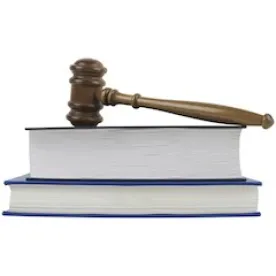Addressing the standard for imposing fee and cost awards against counsel, the US Court of Appeals for the Federal Circuit reversed the district court’s award holding the patent owner’s lawyers jointly and severally liable for litigating patents invalid under Alice. Gust, Inc. v. AlphaCap Ventures, LLC, Case No. 17-2414 (Fed. Cir. Sept. 28, 2018) (Linn, J) (Wallach, J, dissenting).
AlphaCap, a non-capitalized, non-practicing entity, secured counsel at Gutride Safier (GS) on a contingency basis and asserted three patents against 10 internet crowdfunding companies in January 2015, seven months after the Supreme Court of the United States decided Alice (IP Update, Vol. 17, No. 7). Nine defendants settled for less than $50,000, but Gust continued to litigate both infringement and invalidity.
A year and a half and a venue transfer (from the Eastern District of Texas to the Southern District of New York) later, the district court dismissed AlphaCap’s claims. The district court awarded fees and costs under 35 USC § 285, concluding that the case was exceptional because Alice gave AlphaCap clear notice that its patents were invalid under § 101. The district court further found that AlphaCap brought the case only to “extract a nuisance settlement” and that an award was necessary “to deter AlphaCap’s predatory patent enforcement practice.”
The district court also awarded fees and costs under 28 USC § 1927, making GS jointly and severally liable for the attorneys’ fee award of more than $492,000 and $16,000 in costs. The district court found that GS’s actions had been unreasonable and in bad faith, highlighting GS’s refusal to settle the case despite knowing that Alice would invalidate the asserted claims, its statement to AlphaCap that the case was “not worth litigating” (implying a low settlement amount), and its resistance to the motion to transfer from the Eastern District of Texas. On reconsideration, the district court noted that “Fees under Section 1927 were not awarded based on the filing of the litigation.” The court explained that the filing of what it considered to be frivolous litigation was nevertheless “not irrelevant to the decision to impose fees,” because it “supported [the district court’s earlier] finding that counsel acted in bad faith when it unreasonably and vexatiously multiplied the proceedings.”
GS appealed, limiting its appeal to GS’s joint and several liability for Gust’s attorneys’ fees under § 1927.
The Federal Circuit reversed. The Court applied the US Court of Appeals for the Second Circuit’s “more exacting” standard than an ordinary abuse-of-discretion standard to evaluate the § 1927 award. Section 1927 authorizes awards against lawyers only where a lawyer “so multiplies the proceedings in any case unreasonably and vexatiously.” In the Second Circuit, this standard requires that the lawyer’s actions (1) were “entirely without color” and (2) “were brought in bad faith—that is, motivated by improper purposes.”
First, the Federal Circuit addressed the “color” of the claims. The Court rejected the filing of a baseless complaint as support for a § 1927 award, noting that a baseless filing must be addressed under Fed. Rule of Civil Pro 11, not § 1927. The Court agreed with GS that AlphaCap’s patent-eligibility position was colorable based on the “relative paucity” of § 101 cases decided between the Supreme Court’s decision in Alice and the filing of AlphaCap’s complaint, and throughout the pendency of the litigation. The Court recognized the importance of “allow[ing] attorneys the latitude necessary to challenge and thus solidify the legal rules without the chill of direct economic sanctions.” Thus, where the law is unsettled, a finding that the lawyer’s position lacked color should not rest on hindsight as to the state of the law.
Second, the Federal Circuit addressed GS’s lack of bad faith. The Court rejected the district court’s conclusion that GS knew that AlphaCap’s patents were invalid, refusing to infer bad faith unless a lawyer’s actions were “so completely without merit as to require” such a conclusion. The Court also refused to allow concerns about AlphaCap’s business model as a non-capitalized, non-practicing entity pursuing quick settlements to support a § 1927 award, again leaving such concerns to Rule 11. Likewise, the Court rejected the selection of a proper venue (here, the Eastern District of Texas), even if ultimately found less convenient, as supporting such an award. Finally, it rejected the district court’s reliance on a refusal to settle or grant a covenant not to sue to justify an award against a lawyer, because settlement is a decision in the client’s purview.
Judge Wallach dissented, accusing the majority of substituting its own factual findings for those of the district court and concluding that the district court had not based its award on an erroneous view of the law or facts.




 />i
/>i

